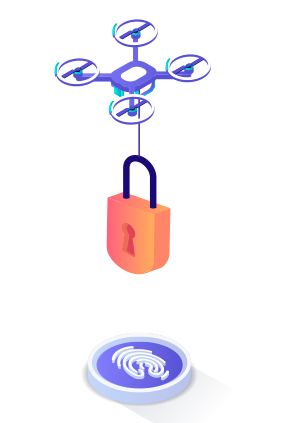
Many SMBs were looking forward to the arrival of 2022, hoping it would bring a return to normalcy after the disruption caused by the COVID-19 pandemic. Now, 2022 has arrived, and it's clear that many pressing challenges of the last year are here to stay.
Among them is the sharp increase of cyber attacks on small and medium-sized businesses, which is causing around 80 percent of business owners to be concerned about a possible cyber incident, as revealed by the 2020 State of SMB Cybersecurity report.
Instead of hoping they will go away, SMBs should familiarize themselves with the top security threats they face and figure out the best way to defend themselves against them.
Threat #1: Increasingly Sophisticated Phishing
Shortly after the novel coronavirus took hold of the nation last March, phishers went into overdrive, launching COVID-19-themed attacks. As if the mere increase in the quantity of phishing attacks wasn't bad enough, their sophistication increased as well.
Researchers detected 467,825 spear phishing email attacks between March 1 and March 23 alone, an increase of a whopping 667 percent since the end of February 2020. Spear phishing, unlike its simpler sibling, targets specific individuals with tailored phishing emails to steal sensitive information, such as passwords and credit card numbers.

Because of its tailored nature, spear phishing attacks are much more difficult to recognize than Nigerian prince scams. They are also not limited exclusively to email. Most employees now communicate using Microsoft Teams, Slack, Zoom, and other online collaboration platforms, which have become lucrative tools for the exploiting of innocent employees in the eyes of cybercriminals.
For small business owners, increasingly sophisticated phishing attacks create pressure to invest in better security tools capable of spotting cleverly disguised phishing attempts using behavioral analytics and other means.
Threat #2: Attacks on Remote Workers
Last year, social distancing measures put in place to curb the spread of COVID-19 forced many SMBs to hastily switch to remote working, leaving behind the closely guarded IT perimeter of the office. Unsurprisingly, 40 percent of organizations that allowed their employees to work from home reported an increase in cyber attacks.
While social distancing measures are being gradually lifted, a large number of employees are still working from their homes, and many will continue to do so long-term. Indeed, we're currently in the midst of a large transition to the hybrid work model as SMBs are combining office and remote work to maintain the agility they need to promptly react to future disruptive events.
However, now that the traditional IT perimeter has been disrupted, cybercriminals have many security gaps to exploit, including:
- Vulnerable endpoints, such as unpatched personal laptops and smartphones.
- Poorly secured Wi-Fi networks.
- Weak physical home security.
- Sensitive data stored unencrypted on various file storage devices.
- The use of unapproved cloud services.
All these security gaps can lead to costly data breaches, and addressing them requires a whole new approach to cybersecurity, one where employees are, to a large extend, personally responsible for their own security.
Threat #3: Weaknesses in Cloud Defenses
The cloud has been a boon to SMBs since the outbreak of the COVID-19 pandemic, freeing them from the shackles of their own IT infrastructures and allowing them to dynamically provision and scale resources up and down as needed.
The only problem is that many organizations are moving to the cloud so fast that their security is starting to lag behind. No wonder then that attacks against cloud users have been surging, with security firm McAfee reporting almost 3.1 million external attacks on cloud user accounts throughout 2020.

Most cloud security incidents in 2021 happened because of misconfiguration, followed by known unpatched vulnerabilities. In other words, most cloud security incidents could be prevented by taking a more cautious approach to cloud adoption and giving cloud security the attention it deserves.
All employees much understand that the cloud is only as secure as the weakest link in the cloud security chain, which can be something as simple as a password that doesn't meet basic password guidelines. In addition to cyber awareness training revolving around cloud-related topics, SMBs should also make security their top priority when choosing between multiple cloud vendors, even if it means spending more money.
Don't Let Security Threats Get in the Way of Your Business
In 2021, SMBs faced several major security threats as they adopt the hybrid work model to thrive in the post-COVID-19 world. Successfully addressing these security threats by identifying and filling cybersecurity holes is just as essential as equipping employees with the tools they need to be equally productive when working from their homes and the office.

At BCA, we provide cost-effective and scalable IT security services helping our customers keep their systems safe from all security threats they may encounter. With our help, the planning, implementation, monitoring, and management of a complete cybersecurity solution for your small to medium sized businesses will be a breeze.
Contact us today to prevent security threats from getting in the way of your business.

